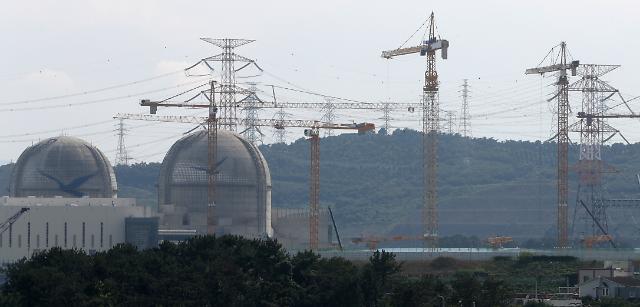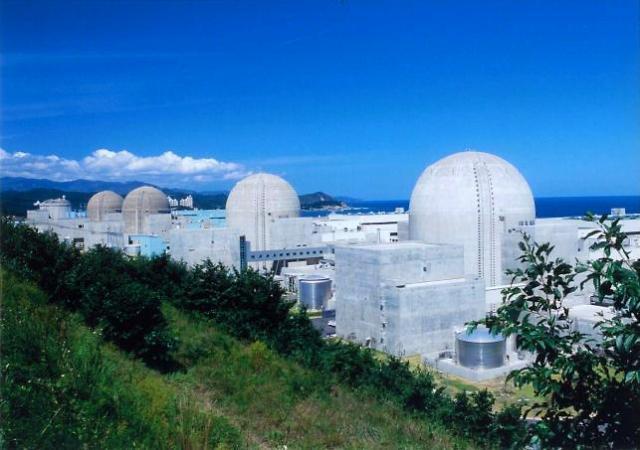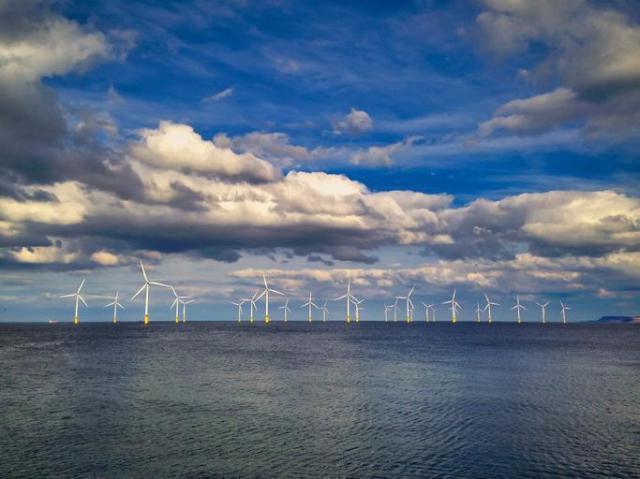
[Yonhap Photo]
(This article was contributed by Lee Jae-ho, a professor at Dongshin University.)
It is regrettable that discussion on phasing out nuclear power plants is proceeding only in terms of the environment, safety, and cost. I wonder if we should look at least once into the big framework of inter-Korean relations. North Korea is suffering from a serious power shortage. There is a famous anecdote that our delegation to the North had to hold talks with a candle lit up because of a blackout. In the winter, hotel guests used to have trouble with no hot water. North Korea is losing in system competition with South Korea due to the stagnation of national development caused by chronic energy shortages, and it picked nuclear weapons as a means to catch up at a single stroke.
Energy aid was one of the most viable alternatives to prevent North Korea from developing nuclear weapons. If we give what it needs, North Korea does not have to stick to a nuclear program. This idea was embodied in the Basic Agreement signed by the North and the US in October 1994. North Korea agreed to give up its nuclear development in return for the $4 billion construction of two 100MW light-water reactors. The agreement was broken in the process of implementing it, but it clearly showed the status of energy in inter-Korean relations.
The issue came back in the fourth round of six-party talks in Beijing in September 2005. In compensation for denuclearization, the delegates promised to normalize relations between North Korea and the US, discuss a peace regime on the Korean peninsula, and provide two million kW of electricity. The so-called September 19 declaration confirmed that energy is the most effective tool to bring about denuclearization. The liberal camp still regards the declaration as the cornerstone of resolving the nuclear issue. We believe that the North Korean nuclear crisis would have been resolved if we had done just as stated. Here are the roots of suggestions by Moon Jung-in, the special presidential advisor for unification, diplomacy, and security, for an end to North Korea's nuclear and missile provocations and the reduction of ROK-US joint exercises. The physical basis of such an important declaration rests ultimately on electricity.
If our energy capacity shrinks with the so-called 'nuclear-exit' policy, we may lose one important means of checking North Korea's nuclear program. If we are able to give electricity, it is more likely than not to improve inter-Korean relations or solve the North Korean nuclear issue. If we are not able to check its nuclear program with nuclear weapons, it's wise to make North Korea more dependent on us.
As of 2014, the total capacity of North Korea's power generation facilities reportedly stood at 7.253 million kW, which is only 7.8% of our capacity (86.97 million kW). In order to recover it to the level of 1989 before North Korea's economy posted negative growth, power generation should increase to 7.7 billion kWh together with new facilities capable of producing 1.35 million kW. Can we meet this demand after our nuclear phase-out? If the Korean peninsula is unified, there will be explosive electricity demand. We may need 2.64 million kW of additional power generation to increase North Korea's per capita income to $3,000, and 12.32 million kW to increase it to $10,000.
Marcus Noland (Peterson Institute for International Economics) is a leading American scholar who has argued that gradual unification is more advantageous from an economic point of view. If North Korea remains underdeveloped like now, South Korea has too much burden to bear for unification. It's much more advantageous for us to seek unification following steady support to make North Korea better. After attending a conference in Seoul in October 2012, Noland said: The inter-Korean economic gap is larger than that of East and West Germany. The economic structure of North Korea is much more distorted than that of East Germany. North Koreans are far more isolated than East Germans. In short, the cost of unification will be higher than expected.
Clearly, the inter-Korean agreements, reached under his predecessors, that President Moon Jae-in promised to respect will add to the burden. This is the case with the October 4 declaration signed by President Roh Moo-hyun and North Korean leader Kim Jong-Il in 2007. The declaration promises too much to North Korea. It would cost some 116 trillion won to implement all of the main projects such as a West Sea peace cooperation zone, a joint fishing zone, the second-stage Kaesong Industrial Complex, the Haeju special zone, the Anbyon/Nampo shipbuilding complex, and directs tour to Mount. Baekdu.
Energy needs to be secured for these projects to go smoothly. It would be useless without energy. All of the electricity used for the operation of the first-stage Kaesong Industrial Complex came from the South, though it's closed now. As far as inter-Korean exchanges and cooperation are concerned, it is a common practice for North Korea to demand operational power. If we send two million kilowatts of electricity, the North would probably expect us to repair its worn-out power transmission lines that have a leakage loss rate of up to 50%.
In such a situation, can our existing fossil fuel and renewable energy alone without nuclear energy cover the power demand of both North and South Korea? I believe that we would rather have greater electricity capacity to draw a new economic map on the Korean Peninsula, as President Moon said in his 'New Berlin Initiative'. I worry about a contradictory outcome that the liberal value of 'no nuclear energy' would cause a power shortage, hindering another progressive value (Moonlight Policy) of engagement. I would like to get the answers to such questions before we embark on the phase-out of nuclear energy.




